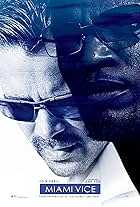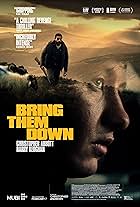
rorymarsh00
Joined Apr 2014
Badges8
To learn how to earn badges, go to the badges help page.
Ratings1.5K
rorymarsh00's rating
Reviews9
rorymarsh00's rating
Sam Levinson's 'Assassination Nation' is an interesting beast. It contains themes and attributes from a multiplicity of genres, but ultimately asserts itself as an exploitation film, using modern fears about data protection and amping it up to eleven. The narrative is fairly straightforward, a series of events resulting in a one man (or, four women) vs. the world scenario. Whilst this story is tried and tested, the characters and direction help this film stand out. Each of the four protagonists are written with such a legitimacy rarely seen in similar films, teenage girls talking as teenagers would, rather than how an older writer perceives them to be, grounding them in reality, a base that is definitely required in contrast with the absurd plot. All the actresses give stellar performances, and their chemistry becomes the lifeblood of the film. On the flipside is Levinson's directorial eye, which proves unique and unabashedly in-your-face, with fragmented party sequences, a technically mind-boggling long take, and an elasticity within the camerawork that is somewhat unrivalled by anything in recent years. Whilst some films of this ilk build tension through dialogue or within the score, Levinson's visuals prepare you for the madness to come. There were certain aspects of the film which will cause it to become dated rather quickly, its references to Twitter and Instagram preventing it from becoming something timeless, however, for what its worth, its message is extremely contemporary for the here-and-now, whilst Levinson's directorial eye will help preserve its lifespan as a likely cult favourite. The term 'cult film' has many facets. As a result, many people will actively dislike this film. At times it is overly gratuitous or even nasty, with the majority of its protagonists unlikable, but intentionally so. If, like myself, you enjoyed it, then these will be no bother, however, if you reject any of these features, it is likely you may give up on 'Assassination Nation' before its conclusion. From my perspective, there were few places where the film faltered. The pacing could become a little slow in the second act, with the set-up completed, it felt more a precursor to the third, rather than a continued progression, and the eventual outbursts of violence, whilst cathartic, could have been pushed yet further, Levinson's camerawork largely straying away, rather than embracing, besides from a particularly gnarly shovel scene, to which there was audible applause from the audience. Furthermore, the frequent inclusion of social media-centric iconography and soundbites grew wearing at times. Besides this, Levinson's film is a brilliantly executed exploitation film, with a unique visual and narrative direction. Like many similar films, some will hate it, however, those who don't, are likely to love it instead. 'Assassination Nation' is here to tell its story, and to be honest, it doesn't really care what you think.
'The Front Runner' is a film that, despite its heavy political background, is more focused on the personal story of its titular character, Gary Hart. Reitman's film both benefits and suffers for this, depending on the type of audience member you are. Should you be expecting a dense political drama, evolving from a campaign and policy focused narrative into more of a personal crisis, you may be disappointed. The political background is present, but irrelevant in the overarching narrative, instead revealing itself to purely be a character-driven drama. 'The Front Runner' is not about the difficulties of running for president, but more about how the media can tarnish one's livelihood, and their treatment to Hart, whilst arguably justified, appears alarmingly savage when compared to Trump's America and the conspiracies plaguing his presidency. As a result, the film is surprisingly relevant today, but more down to coincidence than planned. Despite this, Jackman's performance may be a standout in his career, serving as the lifeblood of this story - his peak dramatic moments are unmatched throughout the film. This performance may well create a contender come awards season, as he skillfully fluctuates from a good-natured family man, to a paranoid mess, and everything in-between. Furthermore, the film's reluctance to take a side regarding the prevalent issues it discusses is bolstered by Jackman creating a character that is not good or bad, neither morally grey, forming someone who is undoubtable real. As a result, when Jackman is at his best, 'The Front Runner' achieves dizzying heights, serving as a relentlessly compelling character piece, however, upon his absence, which serves as a large portion of the film, it can become overly slow and laborious, leaving the audience striving for his return. Furthermore, the conclusion appears anti-climactic which, unavoidable as it may be considering this is a true story, nonetheless ends with a squeak rather than a shout. The narrative aside, the film is technically well-constructed, opening with a gorgeous long-take that establishes the time and setting with efficiency, an illusion that holds up throughout. Even the use of title-cards establishing locations are reminiscent of films made in the late-80's and early 90's, this attention to detail reminiscent of a director who cares for the source material. Reitman is, by this point, an experienced director, and his confidence is visible here, however, it feels as though the stellar direction and performances deserve more than this generic, somewhat unfulfilling narrative can provide.
The Coen Brothers have a catalogue spanning multiple genres and time periods, the vast majority of which considered landmarks in the cinematic landscape of the 1990's and 2000's. With the release of the enjoyable yet troubled 'Hail, Ceaser', however, they hit a speedbump. Whilst this anthology film is definitely a step above their 2016 effort, it shares many of the pitfalls which, for all its credit, remain as noticeable as ever. Being an anthology film, each segment is isolated in it's own narrative, with no overarching plot or recurring characters, granting a certain creative freedom, but also significantly weakening lesser sections which, when not completely immersing the audience, appear more an unnecessary dampener than a valid contribution to this jamboree. The titular section, 'The Ballad of Buster Scruggs', opens the picture, presenting a jovial incarnation of the Wild West complete with musical numbers, a metatheatrical performance from the infallible Tim Blake Nelson, and a surrealist edge absent from the remaining episodes. This proves more of a fantastical approach, with creative action sequences and a charming lead. Whilst it features the most Coenesque feel, it serves more as a breezy opener, than the real meat of the piece - a welcome introduction back to the Coen-dictated West. The shortest sequence is the James Franco starring 'Near Algodones', which serves as the action-packed counterpart to the aforementioned fantasy-musical of Buster Scruggs. The comedic moments here are pitch-perfect, with engrossing sequences to boot, however, our time with these characters is all too brief to make it anything more. Following close suit is by far the weakest portion of the film, Liam Neeson's 'Meal Ticket'. Here, the Brothers take an almost non-dialogic approach, instead utilising visual storytelling to comprehensive, oft-comedic, but ultimately repetitive effect. There's little to say of the narrative, featuring recurring Coen quirk, but little more. The final three portions are the strongest additions to this anthology, each gaining a longer runtime and for good reason. The characters appear far more engrossing and the tone more serious, which is no bad thing. 'All Gold Canyon' is gorgeously shot, providing a vastly different colour pallet and an expose on the harsher sides to living in the West, with Tom Waits perhaps proving the best addition to the cast. 'The Gal Who Got Rattled' likely shares the most with Westerns of old, blending character-centred drama with beautifully executed and tense action sequences, and featuring a warm turn from Bill Heck. Finally, 'The Mortal Remains' proves the most ambitious and starkly unique segment, crafting an almost Beckettian atmosphere with infinite metaphorical value and an assortment of expertly acted characters that finely blend a concoction of tension and side-splitting humour. It stands out like a sore thumb from its predecessors, but may be the freshest addition to the anthology, ending the film on a melancholic yet intriguing note. 'The Ballad of Buster Scruggs' accurately portrays the Coen's love for the Western genre, allowing them to create a series of vignettes exploring areas of the genre that otherwise remained untouched. Blending a musical, an action film, black comedy, drama, epic and existential think-piece together in an incoherent yet delightful feature, this may not be a whole they are remembered for, but certainly features parts that will remain evergreen in their catalogue. If only the opening three segments were stronger, this could have been a standout. Furthermore, they incite excitement for the Coen's to develop another serious feature, a la 'No Country for Old Men', as it affirms that this is where they excel.
Insights
rorymarsh00's rating
Recently taken polls
51 total polls taken

























































